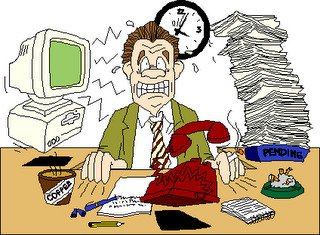Human Resource Management Systems (HRMS, EHRMS), Human Resource Information Systems (HRIS), HR Technology or also called HR modules, shape an intersection in between human resource management (HRM) and information technology. It merges HRM as a discipline and in particular its basic HR activities and processes with the information technology field, whereas the planning and programming of data processing systems evolved into standardized routines and packages of enterprise resource planning (ERP) software. On the whole, these ERP systems have their origin on software that integrates information from different applications into one universal database. The linkage of its financial and human resource modules through one database is the most important distinction to the individually and proprietary developed predecessors, which makes this software application both rigid and flexible.… Read the rest
Human Resource Management
Human Resource Management (HRM) is branch of management that deals with people at work, it is concerned with the human dimensions of management of the organization. As organization consists of people, therefore acquiring them, developing their skills, providing them motivation in order to attain higher goal and ensuring that the level of commitment is maintained are the important activities.
HRM Functions: Training and Management Development
Having selected the manager for the job, he or she must be trained. However, it is not sufficient to provide training only for the manager: the whole family must be trained.
Training should include at least two phases. Pre-departure training should focus on language, history and culture for the whole family and on job-specific training for the manager. On arrival in the new country two or three weeks without too much job-related activity should be allowed for adaptation to the new culture. Transition training should continue with language and culture training as well as meetings at which the new expatriates have the chance to mix with local residents and other foreign nationals.… Read the rest
Stress management: Evaluating stress
Feeling the effects of stress is a normal part of life, especially when you are facing major challenges. But each person responds to stress differently. What causes a lot of stress for one person may not cause stress for someone else. That’s because a large part of stress is a matter of perception-how you view a situation determines how much stress it causes you. Therefore, only you can best evaluate the amount of stress in your life and learn better ways to cope with it.
Ask yourself the following questions to learn what is causing you stress and how you respond:
What job, family, or personal stress do I have?… Read the rest
Stress management: Managing job stress
Job stress comes in many different forms and affects your body in various ways. Minor sources of stress may include equipment that won’t work or phones that won’t quit ringing. Major stress comes from having too much work, not having enough work, doing work that is unfulfilling, fearing a job layoff, or not getting along with your boss.
Usually it is the major sources of stress that lead to burnout, causing people to become unhappy and less productive in their work. Job stress can affect your health and home life as well. Low levels of stress may not be noticeable; slightly higher levels can be positive and challenge you to act in creative and resourceful ways; and high levels can be harmful, contributing to chronic disease.… Read the rest
Corrective disciplinary actions to employees taken by organizations
For repeated but relatively minor incidents of substandard performance, misconduct, or rule violations, corrective counseling and discipline should be progressive. The normal sequence of action is:
- Initial discussion;
- Oral Warning;
- Written Reprimand;
- Suspension;
- Discharge.
Depending on the severity of the case, the action may begin at any of these steps. Any action involving suspension or discharge requires prior review by the Director of Human Resources or his/her designated representative.
Initial Discussion: Normally, initial disciplinary action should be in the form of an oral discussion, especially for minor rule violations. If it appears that an employee has failed to perform his/her work or conduct him/herself according to requirements, the supervisor should first talk to the employee about the matter and informally inquire further into the situation.… Read the rest
Desirable conditions for the success of an incentive scheme
A good wage incentive plan should have the following characteristics.
Administrative simplicity: The incentive system should be simple and must be easily understood by the workers and their representatives. An incentives scheme, which can be understood, only by engineers and mathematicians or a scheme which involves the use of complex formulate or references and cross-references is sure to fail. The incentive scheme should be such that workmen can calculate their own earnings easily and quickly.
Minimum clerical work: The system should fit into existing system of production and cost control. It should not involve any significant addition to the clerical work.… Read the rest



